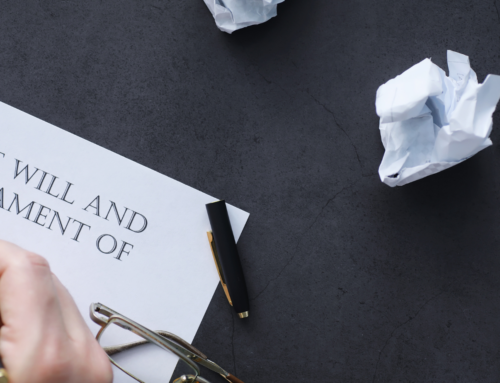 The Blog was featured at: 19 Experts Warn Against Common Pitfalls When Drawing Up a Last Will and Testament
The Blog was featured at: 19 Experts Warn Against Common Pitfalls When Drawing Up a Last Will and Testament
At some stage in one’s life, you realise that:
- you will die, even if you think that is unlikely;
- you are ageing faster than you anticipated; and
- you have accumulated assets and your cat cannot be a meaningful beneficiary.
The result of these thoughts leads you to scribble down some instructions for what you want to happen with your assets, should you by accident die tomorrow, and filing it into your drawer with all the other odds and ends.
Then you have a conversation with a friend or, if you are fortunate to have made the correct decision about this aspect of your life, a financial advisor. This person suggests you should consider drawing up a legal will. That means you must make decisions regarding how to allocate your possessions.
What are your concerns?
- Your parents? No, cannot stand your mother.
- Your pets? Yes, do want them to be cared for after you are no longer around.
- Your sister? Yes, she has children who need to be educated properly and could do with the money.
- Oops, your spouse? Of course. He or she should have priority. Or not?
It is a mistake not to give the allocation of your assets serious thought. It is a mistake to let personal feelings determine the allocation of your assets. You need to set out on a spreadsheet those persons/pets you worry about, or not. And next to it the assets – it is a mistake not to translate them to cash because that is generally what your Executor will do.
How much income do you think one needs for living? You should consider translating what you leave for a beneficiary and how much income he/she can draw from the capital – especially if your cats are being taken over by one of your beneficiaries!
On a practical level: it is a mistake – a major mistake – to write out a “will” and stick it in your drawer. The number of these “wills” declared invalid is frightening. Why? It should, sorry to say, be a legal document with legal language.
You need to make sure that you understand the language when it is drawn up. It goes a long way to those left behind with your mess not resenting you for not doing a proper job. It should have witnesses – two independent, unrelated adult witnesses – who sign and are happy to give their identity numbers and addresses.
It is NOT a mistake to ask your financial advisor (who, for sake of this article, is assumed to be an independent advisor in the true sense of the word) to help you. He/she will deal with an attorney or specialist in drawing up wills legally.
On a more personal level: it is a mistake to think that, once you have a will, you are done with that part of your life. You are not. You need to review it every two to three years. Circumstances change…you change. Keep it up to date.
It is a mistake not to consider whether a Testamentary Trust is necessary to take care of the capital you leave to your sister’s children, your mother or your pets.
It is a mistake to not ask questions about the appointment of the Executor of your estate – particularly when an attorney, who you do not know, drafts the will. Who is this person? How efficient is the person in administering wills? Is the same person a Trustee on the Testamentary Trust and, if so, why?
It is a mistake not to ask questions about the costs associated with your estate, i.e.
- Executor’s fees;
- Trustee fees (if a Testamentary Trust is necessary); and/or
- Advisor fees (whether he/she is involved in the administration of the Estate or giving advice on the money invested in the Trust).
It is a mistake not to have a will. Ask yourself: why would you want anyone – other than a person you have chosen and appointed – to scratch around in your private affairs? Perhaps it is also a mistake not to leave a letter or two to those you leave behind to tell them how much you love and appreciated them.
Drawn up a will already?





